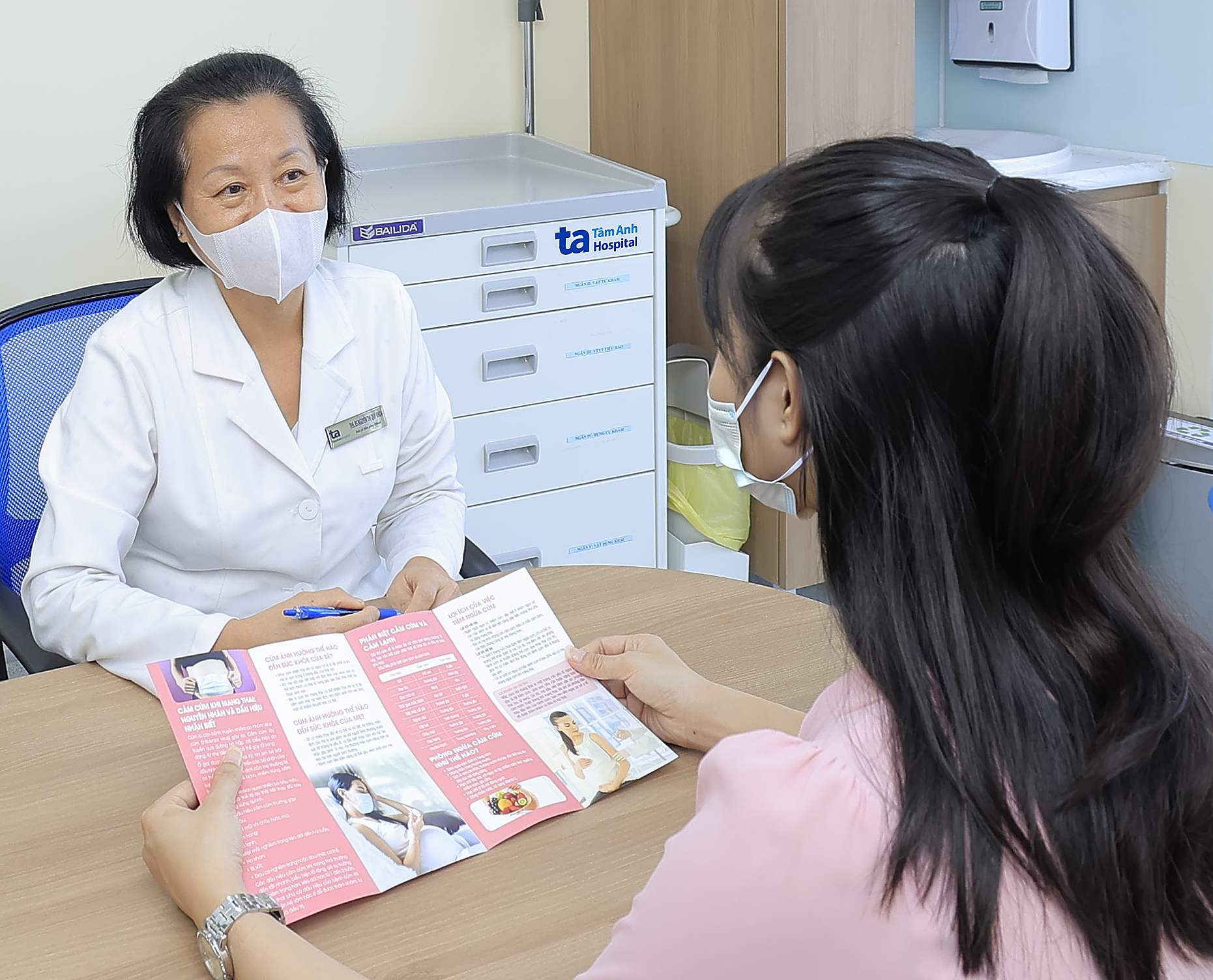Thao, 25, met a 32-year-old man through a dating app and they had unprotected sex. A month later, she experienced itching in her genital area. A gynecological examination at Tam Anh General Hospital in Ho Chi Minh City confirmed genital warts caused by the human papillomavirus (HPV).
Doctor Nguyen Thi Quy Khoa, Deputy Head of Obstetrics at the hospital's Obstetrics and Gynecology Center, explained that HPV is transmitted through skin-to-skin or mucous membrane contact in the genital area, even without deep penetration or visible symptoms. The virus can easily penetrate the mucosal cell layers or tiny scratches on the skin, causing infection within hours or days after contact. The incubation period can range from a few weeks to months, or even years, depending on individual health and immune system.
 |
Doctor Quy Khoa advises young women on preventing sexually transmitted diseases. Photo illustration: Thanh Thao |
There are over 200 HPV types, including 14 high-risk types linked to cancer (16, 18, 31, 33, 35, 39, 45, 51, 52, 56, 58, 59, 66, and 68). Thao's HPV type 11 is considered low-risk but can cause genital warts and increase the risk of precancerous lesions in the cervix.
Thao is now receiving treatment for the infection and has committed to practicing safe sex. She has also been vaccinated against high-risk HPV types.
Lack of awareness about sexually transmitted infections (STIs) and failure to use protection are common reasons for HPV transmission, according to Doctor Khoa. At Tam Anh General Hospital's Obstetrics and Gynecology Center, 30% to 35% of women undergoing cervical cancer screening test positive for HPV, with about one-third infected with high-risk types, mainly 16, 18, and 12. This is most prevalent among women aged 20 to 30. HPV infection can lead to benign conditions like genital warts, or malignancies such as cervical, vulvar, vaginal, penile, anal, oral, and throat cancers.
Doctor Bach Thi Chinh, Medical Director of the VNVC vaccination system, emphasizes that vaccination is an effective way to prevent HPV infection. In Vietnam, only about 12% of women aged 15 to 29 have received the HPV vaccine, significantly lower than Singapore's 80%.
To prevent STIs, doctors recommend using condoms, practicing monogamy, limiting sexual partners, and getting regular checkups every 6 to 12 months. Any unusual symptoms, such as itching, burning, discharge, or sores in the genital area, should prompt immediate medical attention to prevent further transmission. Sharing personal items like towels, razors, and underwear should also be avoided.
Tue Diem
*Name has been changed.
| Readers can submit questions about obstetrics and gynecology here for doctors to answer. |












